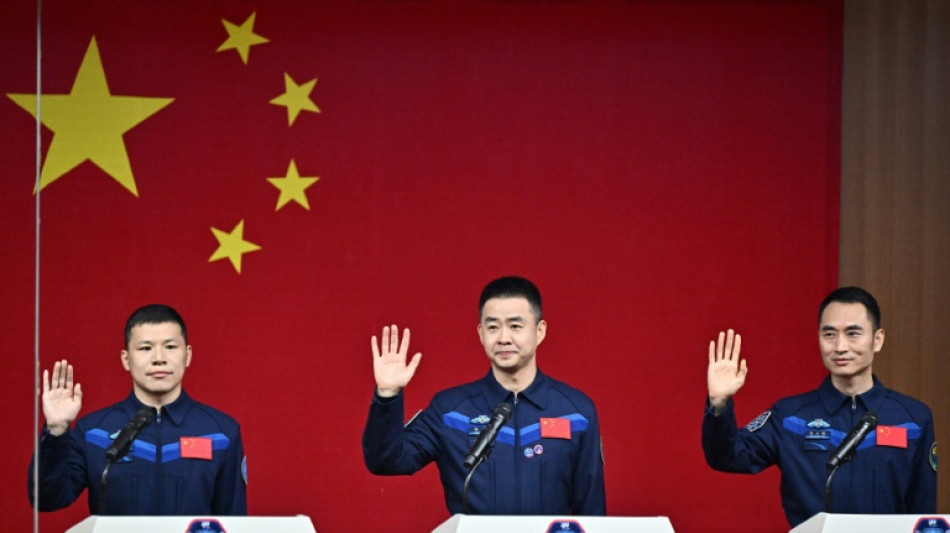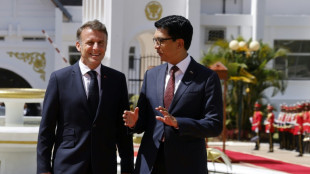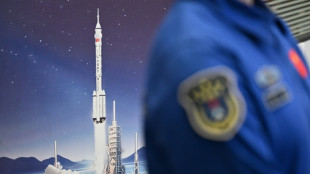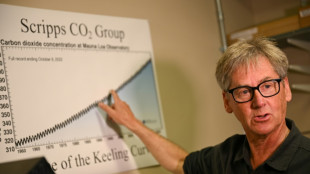

Chinese astronauts set to blast off for space station
China will send a new team of astronauts to its space station on Thursday, as the country marches towards its ambition of becoming a space power to rival the dominance of the United States.
Beijing has pumped billions of dollars into its space programme in recent years in an effort to achieve what President Xi Jinping describes as the Chinese people's "space dream".
The world's second-largest economy has bold plans to send a crewed mission to the Moon by the end of the decade and eventually build a base on the lunar surface.
It will mark its latest milestone on Thursday, when the Shenzhou-20 mission will ferry a team of three astronauts to the country's self-built Tiangong space station.
The all-male trio will blast off at 5:17 pm (0917 GMT) from the Jiuquan Satellite Launch Center in the country's remote northwestern desert, according to the China Manned Space Agency (CMSA).
Leading the mission is Chen Dong, 46, a former fighter pilot and veteran space explorer who in 2022 became the first Chinese astronaut to clock up more than 200 cumulative days in orbit.
The other two crew members -- 40-year-old former air force pilot Chen Zhongrui, and 35-year-old former space technology engineer Wang Jie -- will be embarking on their first space flight.
"Today, I am on the point of realising my dream of flying in space," Chen Zhongrui told a news conference on Wednesday arranged to introduce the astronauts to the public.
The crew will work on Tiangong for six months, carrying out experiments in physics and life sciences and installing protective equipment against space debris.
For the first time, they will also bring aboard planarians –- aquatic flatworms known for their regenerative abilities.
The team will also conduct spacewalks, replenish supplies and carry out general maintenance on the structure.
Three astronauts currently aboard Tiangong are scheduled to return to Earth on April 29 after completing handover procedures.
- Jewel in the crown -
During a government tour on Wednesday afternoon, AFP journalists saw the rocket ensconced in a sky-blue launch tower, surrounded by red flags as workers in blue jumpsuits made final checks before the launch.
China's space programme is the third to put humans in orbit and has also landed robotic rovers on Mars and the Moon as it seeks parity with the world's two most established celestial powers, the United States and Russia.
Crewed by rotating teams of three astronauts every six months, Tiangong -- whose name means "celestial palace" in Chinese -- is the jewel in its crown.
China has been excluded from the International Space Station since 2011, when the United States banned NASA from collaborating with Beijing.
It has since sought to bring other countries into its space programme, and in February signed a deal with longtime ally Pakistan to bring the first foreign astronaut aboard Tiangong.
As part of this process, "two Pakistani astronauts will be selected to come to China for training", the CMSA confirmed on Wednesday.
L.Martin--VC







